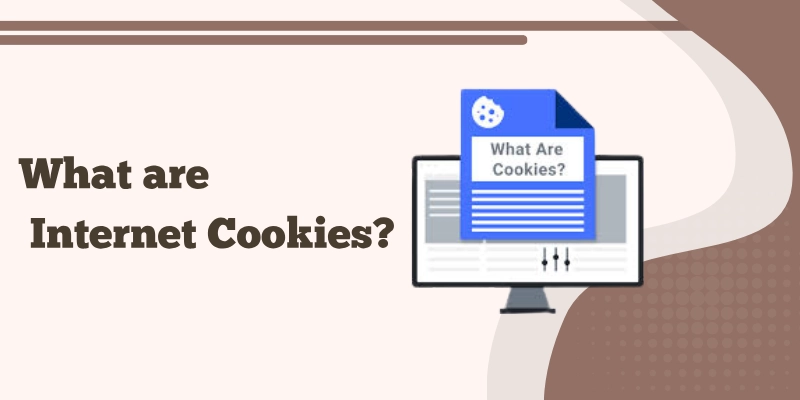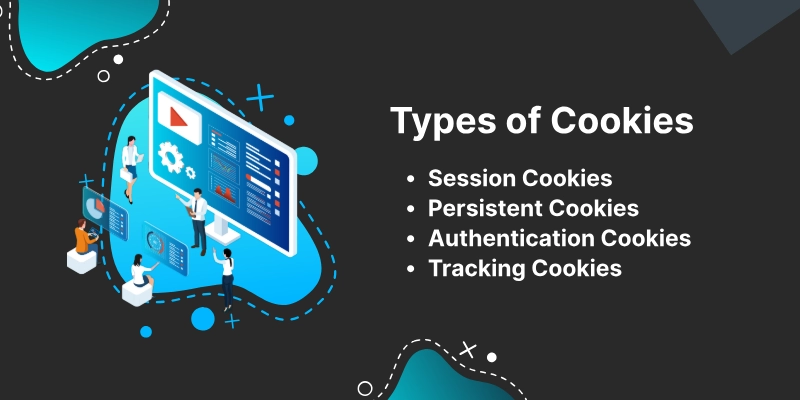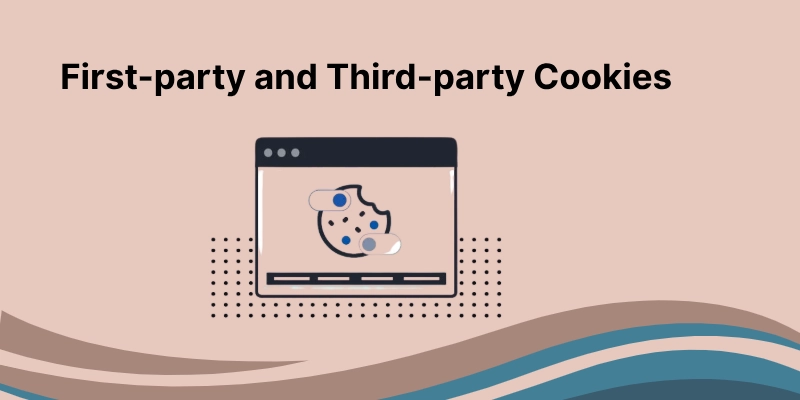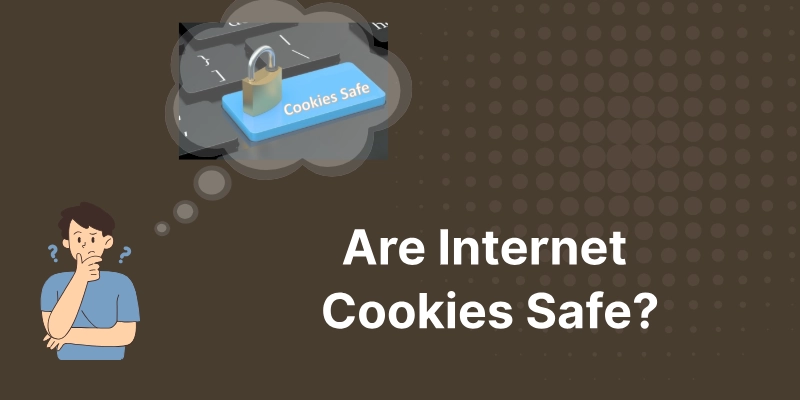What Are Cookies and How Do They Affect Your Privacy?
Published: 19 Jun 2025
When you visit a site your data is stored in small data files which are called cookies. They help sites remember you and your preferences. Cookies can store login information, shopping cart items, or site settings, making browsing easier and more efficient.

For websites, cookies improve user experience, help sites function smoothly, and allow personalization of content and ads. However, cookies can also collect personal data, raising privacy concerns, so users need to understand how they are used and manage their settings.
Let’s dive into the details about what are cookies and how they work.
What Are Internet Cookies?
Internet cookies are small data files stored on your device by websites. They are created when you visit a site. Cookies can save information like login details, preferences, or shopping cart items.
When you visit a site, the server creates a cookie and sends it to your browser. Your browser stores the cookie, and on your next visit, it sends the cookie back to the server. This helps the site recognize you and provide a personalized experience.
Types of Cookies
There are several types of cookies, each with a specific purpose:
Session Cookies
These are temporary cookies that are erased when you close your browser. They help websites remember your actions during a single visit, such as keeping items in your shopping cart.
Persistent Cookies
Unlike session cookies, persistent cookies remain on your device even after you close your browser. They are used to remember your preferences and login information for future visits.

Authentication Cookies
These cookies are used to verify your identity when you log in to a website. They ensure you stay logged in during your session and help prevent unauthorized access.
Tracking Cookies
These cookies are used to track your browsing behavior across websites. They help build a profile of your interests and are often used for targeted advertising. Third-party cookies are a type of tracking cookie set by a domain other than the one you’re visiting, allowing advertisers to track your activities across multiple sites.
How Cookies Are Used?
Cookies are used for various purposes to enhance your browsing experience. Here’s a brief guide on how cookies function:
- Enhancing Website Functionality: Cookies help remember user settings and preferences, keep items in shopping carts, and make navigation smoother.
- Improving Personalization and User Experience: Cookies tailor content and recommendations based on user interests and past behavior.
- Analytics and Advertising Purposes: Cookies track user interactions to gather performance insights and display targeted ads based on browsing behavior.

First-party and Third-party Cookies
Cookies can be classified into two types based on who sets them: first-party and third-party cookies. Let’s take a closer look at each.
First-Party Cookies
- Set by the website you are directly visiting.
- Used to remember your preferences and login details on that specific site.
- Example: Keeping you logged in to your social media account or saving items in your online shopping cart.
Third-Party Cookies
- Set by a domain other than the one you are visiting, usually by advertisers or tracking companies.
- Used to track your browsing across different websites and build a profile of your interests.
- Example: Showing personalized ads based on your recent online activity or gathering data for analytics across multiple sites.
Key Differences
- First-party cookies provide a more personalized experience on a specific site, while third-party cookies enable cross-site tracking for targeted advertising and data collection.
- First-party cookies are generally seen as more privacy-friendly compared to third-party cookies, which raise privacy concerns due to extensive tracking.

Are Cookies Safe?
Cookies are usually safe, but they can raise privacy and security concerns. First-party cookies enhance user experience on one site. Third-party cookies track your behavior across different sites. This tracking can be a privacy issue. Advertisers use cookies to build your profile and target ads. While cookies don’t harm your device, they can impact your privacy. Managing your cookie settings helps protect your data.
Conclusion
Understanding What are cookies is important for protecting your privacy online. They play a key role in how websites function and how your data is used. By knowing the types of cookies and how they work, you can make informed decisions. Taking control of your cookie settings helps you manage data collection and enhance your browsing safety.
Now that you know what cookies are, check your browser settings to manage your browsing experience. How do you feel about cookies? Let us know your thoughts in the comments below!
FAQs:
Here are some frequently asked questions (FAQs) to help you better understand cookies and how they work.
Cookies can track your browsing habits, which can raise privacy concerns. However, most websites allow you to manage or opt out of tracking cookies.
Yes, you can disable cookies in your browser settings. However, this may affect your experience on some websites, like logging in or saving preferences.
Websites use cookies to improve user experience by remembering preferences, keeping users logged in, and providing personalized content or ads.
You can manage cookies through your browser settings, where you can choose to accept, block, or delete cookies. Some websites also offer options to customize cookie preferences.
Most websites use cookies to improve user experience and functionality, but not all do. You can always check a website’s cookie policy for more information.
Websites ask for permission to use cookies to comply with privacy laws, like the GDPR, which require them to inform users about tracking and data collection.
Yes, you can delete cookies from your browser settings. This can help clear stored data but may also log you out of websites and remove preferences.
Cookies themselves are not harmful, but third-party cookies can be used for tracking and collecting personal data without your consent. You can control cookies to limit this.
You can clear cookies by going to your browser settings, finding the privacy or history section, and selecting the option to clear cookies and cached data.
Cookies store information about your browsing activity, while cache stores parts of websites (like images) to speed up loading times. Both improve website performance but serve different purposes.

- Be Respectful
- Stay Relevant
- Stay Positive
- True Feedback
- Encourage Discussion
- Avoid Spamming
- No Fake News
- Don't Copy-Paste
- No Personal Attacks

- Be Respectful
- Stay Relevant
- Stay Positive
- True Feedback
- Encourage Discussion
- Avoid Spamming
- No Fake News
- Don't Copy-Paste
- No Personal Attacks





